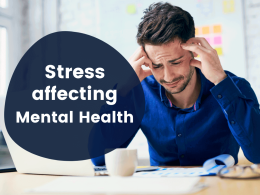Have you ever experienced days where your mood seems to be in a constant state of gloom, and no matter how hard you try, you just can’t shake off the feeling? Many people attribute their low moods to stress at work or personal life issues, but what if we told you that there is something else happening beneath the surface that could be responsible for your blues? Recent research suggests that there may be a hidden link between inflammation and depression – an association that has far-reaching implications for our overall well-being. In this blog post, we will explore this connection in depth and show you how understanding it could make all the difference in improving your mood and quality of life.
What is inflammation?
Inflammation is the body’s natural response to injury or infection. When the body detects an intruder, it sends immune cells to attack and remove the foreign object. In addition to clearing an infection or injuring tissue, inflammation can help your body repair damaged cells and tissues.
However, chronic inflammation can have negative consequences on your health. For example, inflammation has been linked with a number of chronic diseases, including heart disease, cancer, depression, and diabetes. In fact, inflammatory markers are one of the most common measures used to diagnose these conditions.
What Causes Inflammation?
Chronic inflammation is typically caused by a combination of environmental factors (such as smoking or exposure to pollution) and lifestyle choices (such as poor diet). However, you can also develop inflammatory conditions due to an inherited gene mutation or an autoimmune disorder.
Chronic inflammation can impact your mood and overall well-being in a number of ways:
1) Inflammation can increase your risk for developing depression. Studies have shown that people with higher levels of inflammation are more likely to experience episodes of depression than those with lower levels of inflammation. Additionally, antidepressant medications work best when they reduce inflammation levels in the brain.
2) Inflammation can damage cells in your brain circuitry responsible for processing emotions and thoughts. This damage may lead to depression symptoms because emotions and thoughts are essential components of quality mental health.
3) Inflammation can increase your risk for developing
What are the different types of inflammation?
Inflammation is a natural response your body produces to protect itself from harm. However, sometimes inflammation can lead to chronic inflammation, which can cause conditions like arthritis, Crohn’s disease, and multiple sclerosis.
Chronic inflammation has been linked with depression symptoms, including feeling sad or lonely more often, having trouble concentrating or making decisions, and having trouble sleeping. The reason for this connection is still unknown, but it could be because chronic inflammation changes the way your brain functions.
There are three different types of inflammation: acute (short-term), sub-acute (between short-term and long-term), and chronic (long-term). Acute inflammation occurs when you get sick or injured and your body starts to produce inflammatory proteins to fight the infection or injury. Sub-acute inflammation happens when the infection or injury doesn’t go away and your body continues to produce inflammatory proteins. Chronic inflammation is ongoing and your body produces inflammatory proteins all the time no matter what’s going on.
How does inflammation play a role in depression?
One of the most common symptoms of depression is a persistent and often intense feeling of sadness. And while it’s not fully understood, one possible explanation for why some people experience such severe sadness is inflammation.
Inflammation is an immune response that occurs when the body’s cells are attacked by pathogens, pollutants or other harmful substances. In healthy individuals, this inflammatory response is usually localized to specific areas where the damage occurred. However, in people with depression, inflammation can spread throughout the body and lead to chronic conditions like asthma, joint pain and heart disease.
The link between inflammation and depression has been recognized for quite some time now. One study published in The Journal of Neuroimmune Pharmacology found that women with major depressive disorder had significantly higher levels of C-reactive protein (CRP), a marker of inflammation. And another study published in The British Journal of Psychiatry found that people who were least likely to respond to antidepressants were also the ones with the highest levels of CRP.
So what does this mean for those struggling with depression? It seems that if you have elevated levels of inflammation, your mood may be more severely affected than if you don’t have any inflammation at all. And since depression is a chronic condition, managing your inflammation level could help improve your overall mood and well-being over time.
How can you reduce inflammation and improve your mood?
There is a lot of talk about inflammation and its impact on our health, but what about mood and overall well-being? It turns out that inflammation can play a role in both conditions.
When the body experiences an inflammatory response, it produces cytokines. Cytokines are proteins that help to regulate the immune system and promote inflammation. They can also have negative impacts on our mood and overall well-being.
One study found that people with higher levels of inflammation were more likely to experience depression symptoms. Another study found that cytokine levels were significantly associated with anxiety symptoms in adults.
If you’re feeling down, it might be worth checking your levels of inflammation. There are ways to reduce inflammatory responses and improve your mood and overall wellbeing. These include:
• Limit your intake of processed foods and refined carbohydrates. These types of foods are promoters of inflammation because they contain high levels of sugar, unhealthy fats, and additives. Instead, focus on healthier options like fruits, vegetables, whole grains, and low-fat dairy products.
• Exercise regularly – exercise has been shown to reduce inflammation in the body due to the release of endorphins (feel-good hormones). Engaging in regular physical activity has been shown to improve both mental well-being and physical health overall.
• Get enough sleep – gettingadequate sleep is vital for regulating our moods and preventing obesity; studies have found that people who get less
Conclusion
If you’re struggling with depression or inflammation, it may be time to explore the connection between the two. Studies have shown that both conditions can increase each other’s severity, and a lack of regularity in one can lead to problems in the other. If you want to improve your mood and overall well-being, it’s important to find an approach that addresses both issues head-on. Please continue reading for more information on how lifestyle choices and dietary changes can help reduce inflammation and promote a healthy mind.










